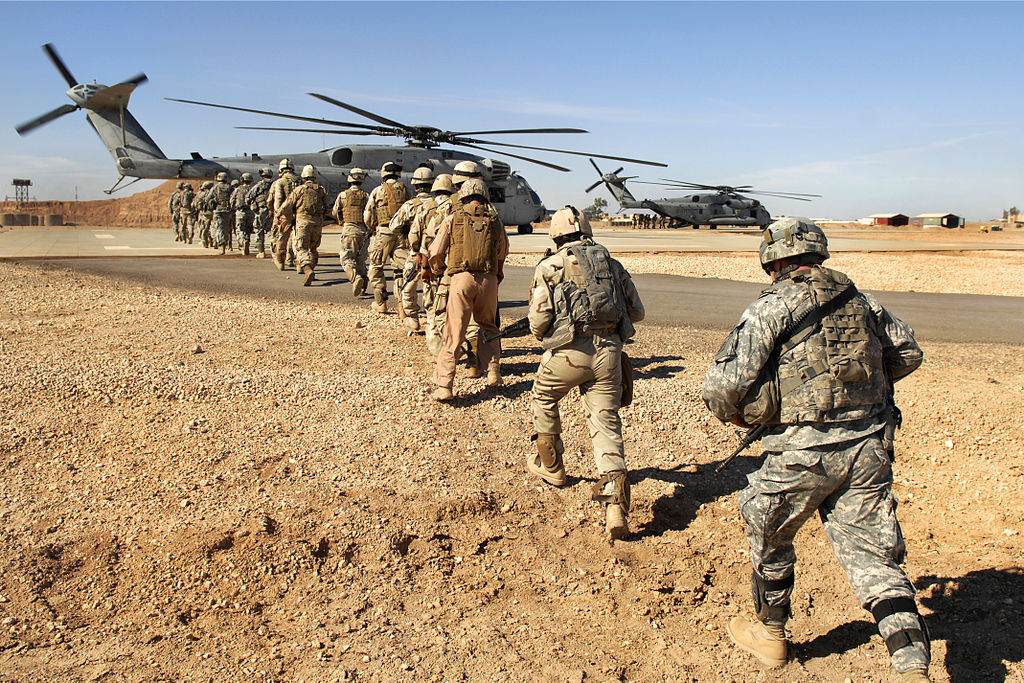New ventures for terrorism

By Ali Raza
Now, the situation has entirely been changed as the whole international community as well as entire world is witnessing that currently, emerging and most eminent threat is ISIS, which in short been created due to the wrong policies of U.S. in Iraq whereas, regional allies such as Pakistan were of the view and continuously in terms of assistance, trying to convince the U.S. that to open up all the ventures is not appropriate for the well being of entire globe.
The recent US-led global collation against IS would be a bad-omen for Pakistan due to the presence of many terrorists organizations on its soil. There is a problem at our neighborhood as Saudi Arabia and Iran are engaged in a strategic competition in the region which has direct consequences for Pakistan’s internal security. BRICS is also emerging a sophisticated economic forum in the global economic order. The Pak-U.S relation is heading towards more decline as Pakistan has lost its previous attraction due to US-planned withdrawal from Afghanistan this year as US security threat has diverted to Middle East due to the sudden rise of ISIS in Iraq and Syria.
The recap of U.S. policies can be taken as that Al-Qaeda and Osama bin-Laden got their start with U.S. support in the 1980s in Afghanistan. This fact was acknowledged by none other than the very “establishment” bipartisan 9/11 Commission report. Al-Qaeda and bin-Laden were backed by the U.S. in a war that was supposedly to defend democracy for the Afghan people. But the real purpose was to advance a top U.S. geopolitical aim, defeating the Soviet Union. Close to 3,000 Americans paid the price for this on Sept. 11, 2001. The Afghan people have paid a terrible price throughout and continue to do so.
That U.S. military venture laid the seeds for what we’re seeing today. ISIS is just the latest incarnation of vicious, reactionary extremism wrapped in a distortion of religion, funded by key U.S. allies – Saudi Arabia and Qatar in particular.
President Obama announced an expanded military campaign reaching into Syria as part of a strategy to “degrade and ultimately destroy” ISIS. This is a dangerous development.
On the other hand, the president has also announced a new “core coalition” for the military campaign against ISIS. The coalition is composed of the U.S., Britain, Australia, Canada, Denmark, France, Germany, Italy, Poland and Turkey.
That announcement came on the sidelines of a NATO summit meeting in the UK. “But some diplomats said they were uncomfortable using a summit meeting of the 28-nation alliance as a backdrop for a smaller group with no NATO imprimatur and, except for Turkey, no named Muslim partners.”
That raises the question of why the NATO meeting did not officially sign on. Is it possible that some members, looking at the chaos and rise of extremist militias in Libya following the 2011 U.S./NATO bombing campaign, were not eager to launch another military venture in the region?
From Afghanistan to Libya to Iraq, military interventions have not brought “success” even by U.S. policymakers’ terms. They certainly have not made those countries more secure or stable or democratic. They have not ended terrorism there or elsewhere: after each of these ventures, terrorism has sprouted new and more virulent shoots. They have not made our country safer. In short, they have been horrible failures. They have, however, cost millions of innocent lives, and billions of U.S. taxpayer dollars – while racking up unimaginable fortunes for corporate war manufacturers and contractors. Indeed, from the point of view of war profits alone, does it even matter who’s winning.
The president announced efforts to cut off funding flowing to ISIS and related groups, and to block people from other countries from traveling to the Middle East to fight for ISIS. These are good and vital steps. Of course, the administration ought to be self-critical about the fact that it contributed to the problem by backing an unclear, shifting array of “rebel” groups in Syria, helping turn a democratic movement into armed chaos, thereby helping give birth to ISIS. And these positive steps are likely to be undermined by ramped up moves to do more of what helped cause the problem in the first place – aid supposedly “moderate” rebels in Syria.
As a whole, ISIS is posing huge threat to whole western community as well as to Saudi-Arabia and Iran. Therefore, at the moment there is no devised are clear policy and strategy is available to U.S. and all its allies to cope up with this eminent threat. Whereas, instead of gathering heads U.S. is playing blame game and continuously in seminars, conferences and press releases U.S. representatives are projecting the narrative that Pakistan should help the U.S. are should join the hands with U.S in terms of military assistance but on the hand its fact that Pakistan is deeply involved in war against terrorism at the afghan side also in its own territory and it is unacceptable for Pakistan to get involve itself in such kind of project. Another potential partner for U.S. is available in this regard but U.S. does not want to include Indian Army in this stressed situation the fact is well known to everybody because they are blue-eyed to international community. Whereas, international community is ignoring the sacrifices which has been made by the soldiers of Pakistan Army in this regard such kind of policies in fact usually give birth to elements of terrorism and the moment elements created consequently it becomes their fate to get hype and power for the purposes of destruction as well as elimination of peace and instability of the institutions.




